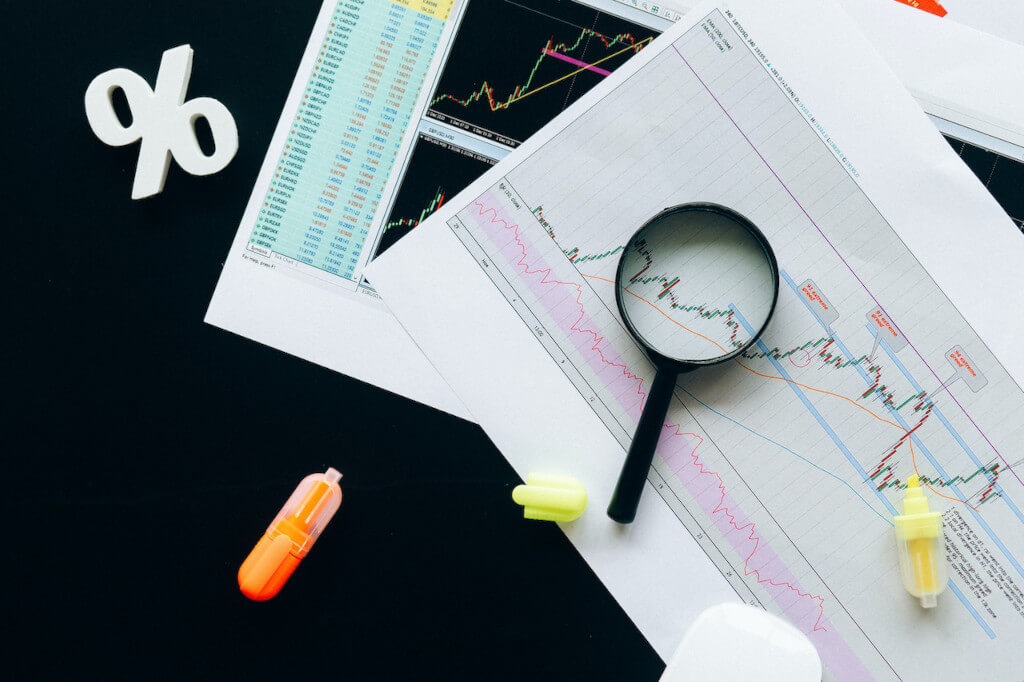Although futures contracts might provide a way for smaller companies to weather economic downturns and inflation and emerge stronger on the other side, engaging in such speculative trading is inherently risky. The bottom line of a small company can be severely impacted when there is inflation risk. For instance, if you operate a coffee house and the cost of coffee beans goes up, you are forced to shell out more cash for them to keep your company running. You simply do not have a choice in the matter.
If the increasing price of raw materials poses a direct danger to your small company, investigating the futures market as a way to protect yourself from the effects of inflation may be a worthwhile endeavor. These investment products can assist you in controlling your operating costs and can also help you lock in prices for your products. Caution is warranted, however, as investing in futures carries the potential for financial loss. This guide will demonstrate how to protect the financial well-being of your company by investing in futures contracts.
What Exactly is Meant by the Term “Hedging With Futures Contracts”?
Obtaining a financial state that is counter to your company’s objectives is what is meant by the term “hedging with futures contracts.” Your risk is reduced as a result of this action; if your company experiences losses, your mutual fund position will generate income and vice versa. Before you can use futures contracts as a form of risk management, you need to determine both the commodity you are interested in trading and the price you are willing to pay (or accept) for that asset.
You are looking for alternative methods to maintain the finances of your small business, right? The following ten suggestions can assist you in strengthening your financial situation and putting your company on the path to success and increased profitability.
Let’s take a look at the situation from the perspective of the operator of a coffee house in a financial system where the cost of coffee grounds is climbing. After going over the numbers from the previous month, the owner has concluded that the company simply cannot afford to spend significantly more for coffee without jeopardizing its intended profit margin. In this scenario, the owner of the coffee house might want to think about investing in coffee futures contracts.
Investing in futures contracts allows companies that require the commodity to essentially secure the market cost for themselves. The worth of the futures contract will progressively increase if the cost of coffee continues to increase. The company will incur additional expenses for purchasing coffee beans; however, the profits earned from the futures contract that they currently hold will more than makeup for these additional expenditures.
The previous illustration focused on a buyer, but production companies can also use futures as a hedging tool to protect themselves from price fluctuations. Consider for a moment a farmer who raises soybeans. The farmer realized after evaluating the expenses that went into the plantation, fostering, and harvesting this year’s crop that their preferred profit margin is contingent on the cost of soybeans ensuring continuity with today’s rates.
The farm worker in this scenario has the option of selling a futures contract “short” if they are concerned about the direction of market prices. This more or less locks in the fee at which they can deliver their goods. They will not earn as much money for their harvest if the value continues to fall; however, they will be able to make up for the lost income with the lucrative short position that they have.
Which Types of Companies Stand to Benefit the Most From Futures?
Before you can start learning how to employ the futures market to keep costs under control for your firm, you need to determine if this is the best approach for your organization. Not every company has the potential to profit from futures, and there is always some level of danger involved in any type of investment activity.
When is the Right Moment to Make Investments in Future?
The most likely companies to profit from investing in futures are those that produce basic materials (like mining industry or food production companies) as well as those that depend upon them to function (like manufacturers).
Contemplate how dependent your business is on various raw goods to determine whether investing in futures could be beneficial to you. Futures contracts are agreements that outline the terms of a payment for a specific commodity. According to the CME Group, the value of a single RBOB fuel futures contract is equivalent to 42,000 gallons of fuel. If your company is reliant on a single commodity, such as gas, you may be able to control prices by trading in commodity futures.
When to Stay Away From Futures
On the contrary, futures may not be advantageous for your company if it is not as reliant on the supply of raw materials. For instance, a coffee house must have coffee beans, but a restaurant that serves a wider variety of food might not have the same stringent standards for its ingredients. When the price of coffee beans goes up, coffee shops have no choice but to raise their prices to cover the increased cost. On the other hand, restaurants may be capable of altering their menus to avoid passing on the increased costs. If the cost of fruit continues to rise, a restaurant might be able to find an alternative to fruit or modify its menu in some other way; alternatively, it might choose to highlight dishes that do not include fruit in its advertising.
Have You Been Informed?
Are you aware that futures contracts aren’t necessarily correlated with the underlying asset? You have the option to purchase futures for equity indexes (such as the S&P 500), cryptos, and foreign currencies; however, it is possible that these products do not have a direct connection to the activities of your business.
The Benefits and Risks of Investing in the Future
Your small company may be facing a variety of different financial challenges, and hedging with futures is not a panacea for all of them. Weak investments might lead to additional financial losses. Before you even consider making a trade in futures, you should keep these advantages and disadvantages in mind:
Advantages
Access to the markets almost around the clock. In contrast to the share market, which conducts the majority of its transactions during normal corporate hours, futures markets are open for business nearly around the clock between Sunday evening and Friday evening. This provides you with a great deal of leeway to adjust the amount of exposure you have to a commodity. You can buy or sell a particular commodity nearly instantly using futures contracts, regardless of whether an event that occurs in the world has a beneficial or detrimental effect on a commodity that you monitor.
A diverse selection of contracts to choose from. Futures contracts can be purchased on a wide variety of underlying assets, not just major commodities like oil, coffee, and soybeans. You can theorize on many different aspects of the globe using futures contracts, such as interest rates, currency exchange, and water. Even if your business is dependent on less commonplace goods or circumstances, you should still consider using futures as a means of safeguarding against the risks associated with your business operations. Because any agreement can be purchased long or sold short, it is possible to make a profit in either direction prices move, irrespective of the underlying asset.
Disadvantages
There is a potential for monetary loss. The essence of hedging is to speculate on the direction of various financial markets. You should buy a contract if you believe that prices will continue to rise, and you should sell a contract if you believe that prices will continue to fall. It is extremely challenging to accurately predict what will occur in the market, and engaging in any form of speculation exposes one to the possibility of incurring a financial loss. In principle, these dangers are reduced thanks to the existence of your company.
If you buy a futures contract and end up losing money, the upside is that the cost of the ingredients you need will be lower. If you take a loss when trading a contract, however, you will get paid more for the goods or services you provide. Futures trading can lead to substantial losses, even so, if you fail to guarantee that your futures stance is directly proportionate to the needs of your company.
Less helpful for smaller companies with varied operations. It’s possible that you won’t need to invest in futures contracts if you run a differentiated and adaptable company that can source its supplies from a wide variety of raw materials. Changing to a different model that uses less expensive inputs can be a less volatile method of dealing with price increases. One example of this would be a restaurant changing its menu.
Main Takeaway
Please note that the facts given on this page are intended solely for academic purposes and do not constitute investment advice. Appoint a financial planner who is familiar with your particular circumstance before putting the money that your business has worked so hard to earn at risk.





